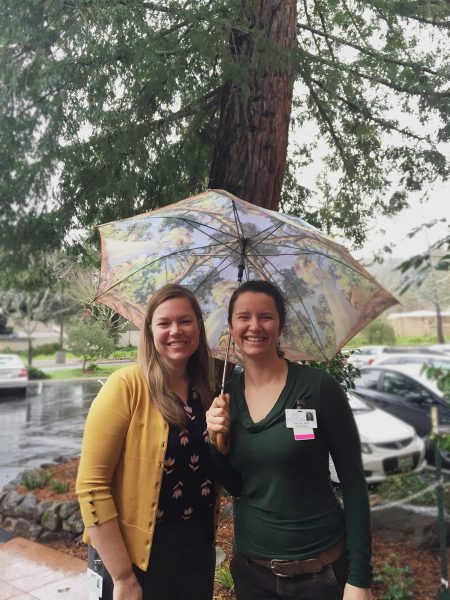Advance Directives: A Caring Decision – Lessons from the Experts

Before joining us at Hospice of Santa Cruz County, Palliative Care Nurse Practitioner Michelle Zirkle-Yoshida worked in family medicine for 10 years. She recalls trying to squeeze in a conversation about Advance Directives with her patients in 10-minute visits.
It was not ideal.
Often, patients can find the paperwork alone daunting. “It can be done that way, but it’s very rushed,” she says. “This is not something that should be done in a rushed manner. It’s something that takes a lot of discussion about what the future looks like.”
We sat down with Michelle and her colleague Katy Gaty-Delia, a Social Worker in our Palliative Care Pilot and Transitions Program, to discuss Advance Directives from the experts’ perspective.
HSCC: Do you have words of encouragement for anyone who is not sure if they should complete their Advance Directive?
Katy: Six years ago, my partner and I were hit by a car in Maui. It was the middle of the day and we were hit from behind. Had the driver been going faster, had the accident been more serious, somebody would have had to make decisions for me. My story helps me to have the conversation with people who wouldn’t normally think they needed a directive.
HSCC: Why is completing an Advance Directive important?
Michelle: There’s a saying — a lot of people in Hospice say it — “It’s always too early until it’s too late.” When we’re younger and in good health, we don’t think this is something we are going to face. But, any of us could have to face a serious illness at any time. It can come up on us very quickly. Or, an accident could happen. These are important things to consider for yourself, and to make sure your loved ones know what you would want.
HSCC: What is on your mind as you’re working with someone to complete their Advance Directive?
Michelle: [At first] people can feel uncomfortable and awkward about this process. So getting started can be hard. One of the things that we hear over and over again is gratitude for having this done. It’s a relief getting your ducks in a row. “Okay that’s done, we don’t have to think about that now.” It does make people feel empowered, like they’re in control. It’s a loving, really compassionate thing to do for your loved ones; to spare them of this additional burden if and when an emergency happens.
“When you complete your Advance Directive — whatever age you are — you are sparing your loved ones from making really difficult decisions by allowing them to honor your decisions.” — Michelle Zirkle-Yoshida
—
Hospice of Santa Cruz invites you to join a health care planning workshop or presentation about an important topic: Advance Directives. Planning ahead for your healthcare — now, while you are able to — is a gift you can give to yourself and those you love.
